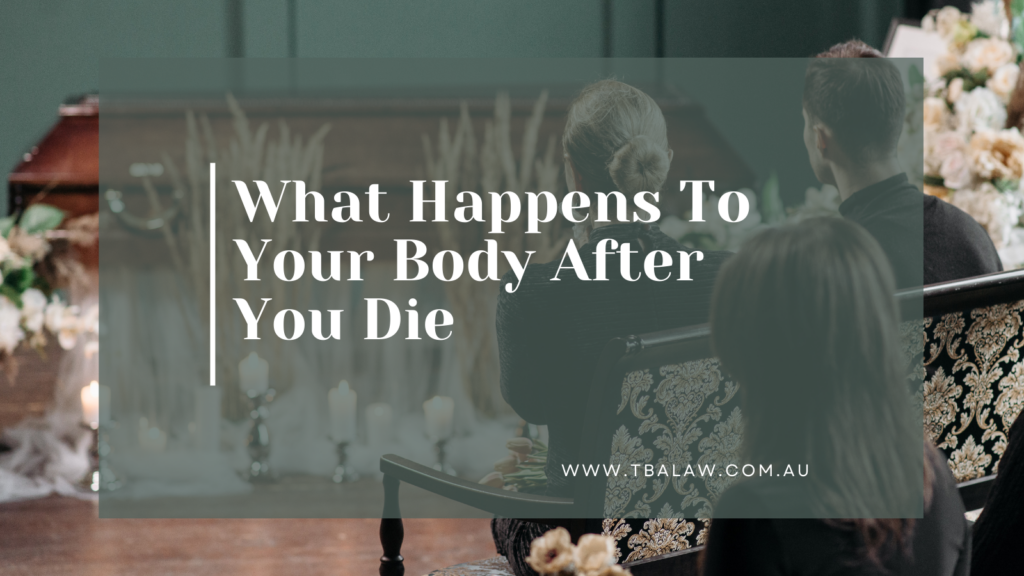What Happens To Your Body After You Die
by Jacqui Brauman
In today’s blog post, we’ll be delving into a rather somber subject—what happens to your body after you pass away.
While this topic may hold varying degrees of importance for different individuals, it’s essential to understand the process that occurs post-death. Whether you pass away in a hospital or at home, your body will initially be under the care of medical professionals. Following this, you’ll typically be transported to a funeral home of your choice, free of charge. If you have already made pre-arrangements, the decision of where to go will be clear. However, if not, the responsibility falls on your family members. Should they decide to transfer your body from one funeral home to another, additional costs may apply.

Who holds the responsibility for determining what happens to your body after you pass away?
The answer is your executor.
This is why it’s incredibly important to carefully choose the right person for this role. Often, people select their spouse, which is a logical choice. However, if you appoint a friend as your executor, it’s crucial for your family to understand that this friend will make the decisions, or vice versa. If you choose someone who isn’t a family member but will respect the family’s wishes regarding your body, clear communication surrounding this decision is essential.
To leave no room for doubt about your preference for burial or cremation, it’s important to include this information in your will. In fact, it’s a criminal offense to do the opposite of what you’ve stated in your will. If your wishes aren’t documented in your will, they may not be legally binding, unfortunately.
If the choice between burial and cremation isn’t a significant concern for you, it’s still essential to inform your executor of your preference. However, keep in mind that this decision may not be legally binding. The same applies to what happens with your remains afterward. For instance, if you’ve purchased a burial plot, it’s likely that your family or executor will respect your choice, but they are not obligated to do so. These are considered wishes and are not legally binding. That’s why it’s crucial to select an executor whom you genuinely trust to carry out your desires.
If you find it challenging to decide on an executor, consider seeking our assistance through the Family Legacy Plan.
This process involves asking essential questions to ensure you feel confident in your choice. Keep in mind that you can appoint up to four executors, and they don’t necessarily have to make decisions jointly—one could act independently if needed. By understanding these nuances, you can make informed decisions and feel secure knowing that your wishes will be respected after you pass away.
Call us at 1300 043 103 or send an email to admin@tbalaw.com.au.






Leave A Comment